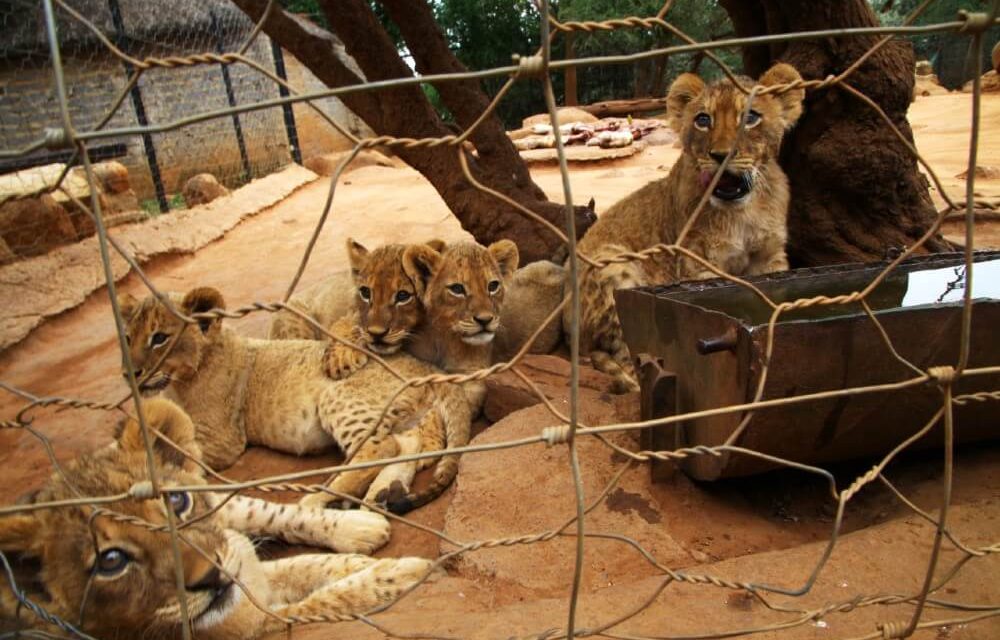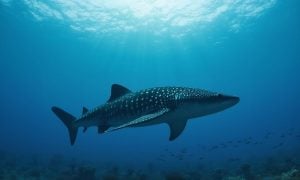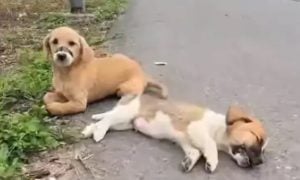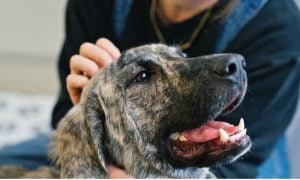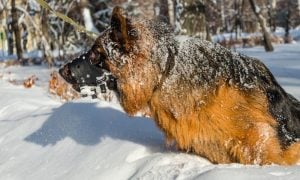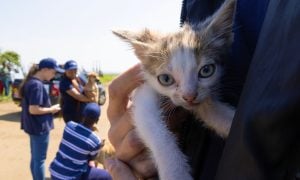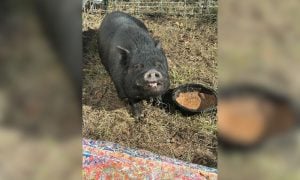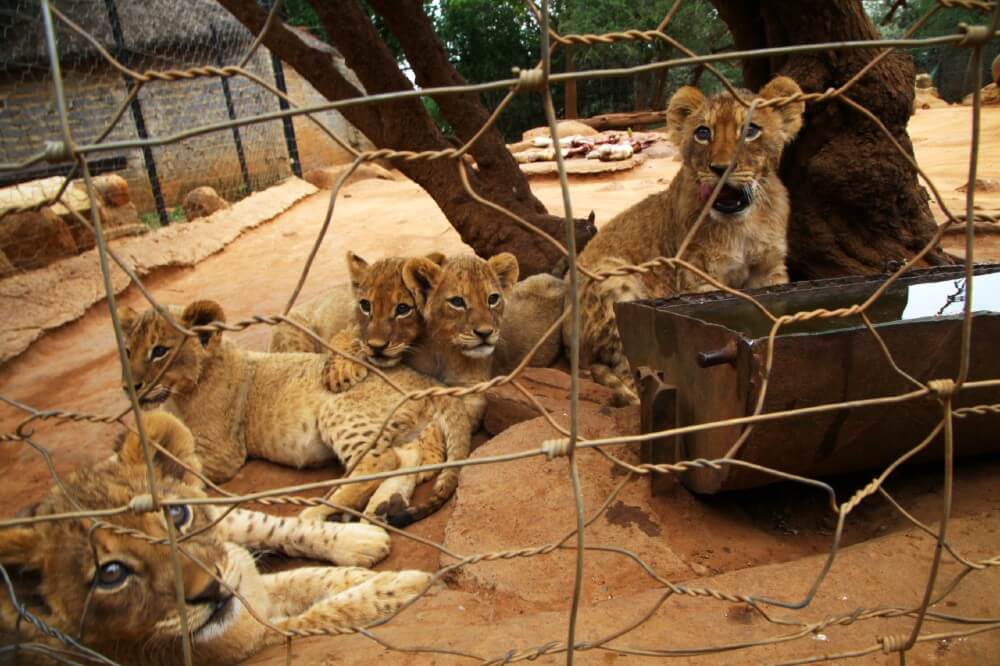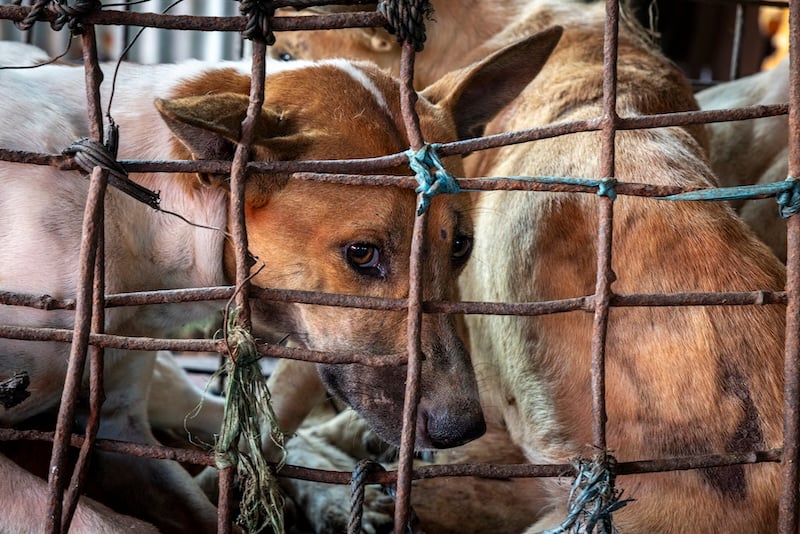Using baby big cats as props for photos, videos, and social media posts to promote tourism has disastrous impacts on the animals’ health and species conservation, a new study by New York University and FOUR PAWS International found.
The study, published in the peer-reviewed journal Animals, analyzed 49 videos uploaded to YouTube that showed physical interactions with cubs from tourists visiting at least 11 safari parks in South Africa from 2008 through 2019.
The study noted tourists seemed to be seeking the “Simba Effect” — a term named after the protagonist in Disney’s The Lion King that refers to tourists’ holding or petting lion cubs while taking selfies and videos to post on social media.
An analyst with LIONSROCK, a FOUR PAWS big cat sanctuary in South Africa, analyzed the footage and determined four concerning trends in the videos: the interactions used very young cubs, most often separated the cubs from their mothers for display, forced cubs into intensive interactions outside of their normal waking hours, and caused stress behaviors in almost all the cubs.
About 61 percent of cubs used in the videos’ interactions appeared to be less than 3 months old, with two as young as one day and nine days old. A majority of cubs — 77 percent — showed behaviors indicating stress, including avoidance and aggression. Researchers also documented only one mother big cat visible in the 49 videos, according to the analysis.
The study’s authors noted no difference in the welfare of the cats in featured interactions purely for tourists’ “entertainment” and those being used for training, reportedly educational purposes, or “voluntourism” – which the authors defined as tourism under the guise of helping those in need.
Contributing stress factors include that animals in the interactions often suffer under inadequate keeping conditions, such as a lack of expert care, frequent traveling, and intensive and forced interactions with people, said Claire LaFrance, from FOUR PAWS and one of the study’s co-authors.
That crucible can prove dangerous for more than just the cat cubs, although there’s hope that times could change.
“We are seeing these kinds of interactive activities with wild animals prove dangerous for both humans and big cats,” LaFrance said. “In the past few years however, we have seen positive progress towards ending the cycle of cub abuse with the fall of Joe Exotic (Tiger King) in the U.S., and the closing of Black Jaguar White Tiger in Mexico.”
Worldwide, African lions face dire conservation challenges. Wild populations have declined from an estimated 75,000 lions to 30,000 lions in the past 20 years, leading the International Union for the Conservation of Nature (IUCN) to list African lions as “vulnerable” and for the United States to list them as threatened under the Endangered Species Act (ESA).
African lions currently inhabit less than 25 percent of their historic range, and it’s likely there are now more lions in breeding farms, safari parks, and zoos than are living freely in the wild, FOUR PAWS noted in a press release.
Numerous studies have reported that cub petting is just the first stage of an exploitative and vicious cycle of commodification and suffering — spanning private individuals who are unable to properly care for wild animals desiring them as “pets,” captive breeding, canned hunting, trophy hunting, and cubs who outgrow their “cute” stage being sold off to roadside zoos with numerous welfare violations.
The new study notes many of those same harms, including a normalizing of touching young lions and perpetuating captive breeding.
“Lions who begin their lives in such facilities become part of a larger cycle of harm including the canned hunting industry, the exotic pet trade, and the black market for wildlife parts,” said Becca Franks, one of the study’s co-authors and NYU Wild Animal Welfare Program’s co-director. “While these activities are well-known, the exploitation of cubs at tourist attractions is less well understood.”
The United States, recognizing the inherent dangers of cub petting, recently passed the Big Cat Public Safety Act, which will prohibit the handling of cubs as well as the private ownership of big cats following a years-long campaign by numerous animal welfare advocates, including Lady Freethinker.
The new study highlights once again just how harmful these interactions are and also underscores the importance of U.S. authorities strictly enforcing the newly-passed provisions for big cat and human safety.

